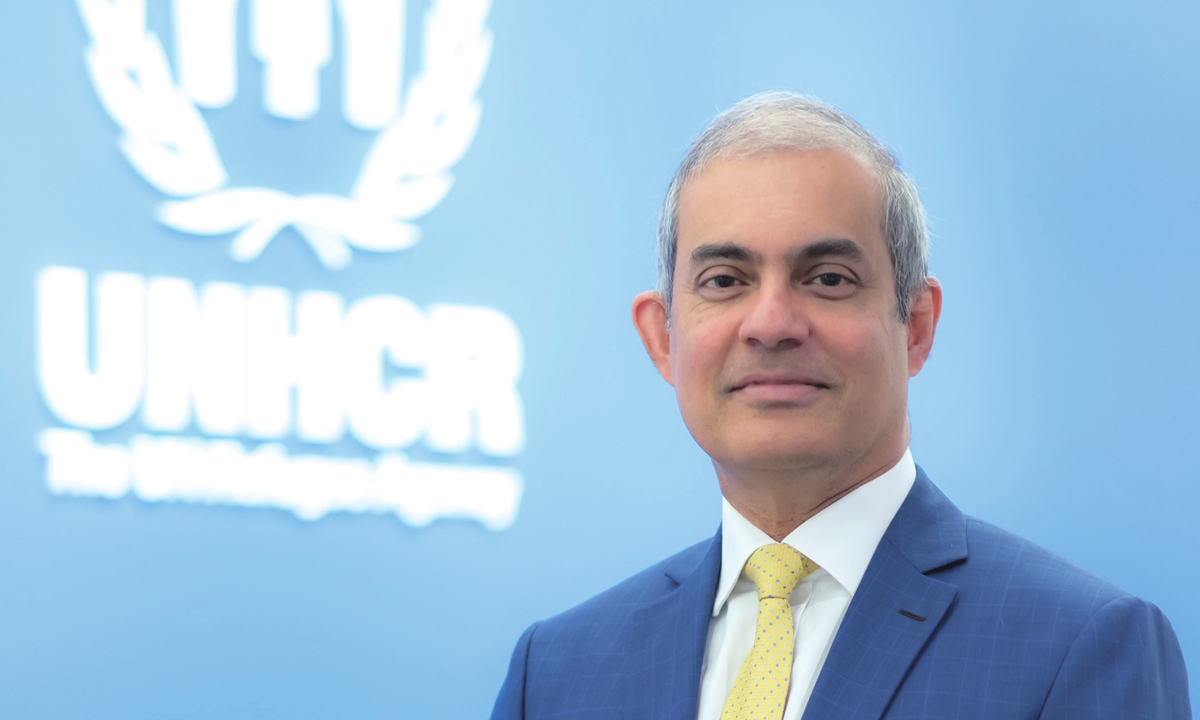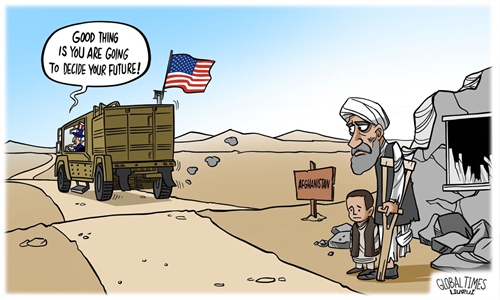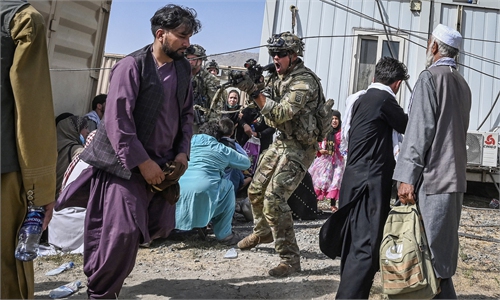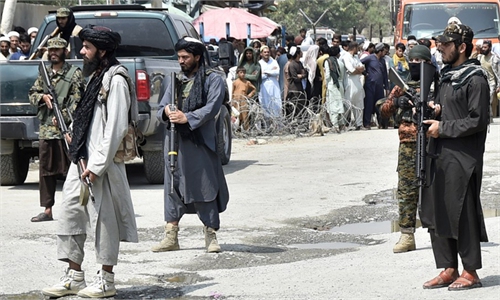
Indrika Ratwatte Photo: Courtesy of UNHCR
Editor's Note:The situation in war-torn Afghanistan has not become stable since the troops of the US and its allies left the country. This is exacerbating the Afghan refugee crisis. The United Nations High Commissioner for Refugees (UNHCR), the UN agency mandated to aid and protect refugees, has been facilitating the settlement of Afghan refugees. What are the top priorities for the refugees? How does the rising populist sentiment in the West prevent these countries from accepting Afghan refugees? Global Times (GT) reporter Wang Wenwen interviewed Indrika Ratwatte (Ratwatte), UNHCR director for Asia and the Pacific, on these issues.
GT: According to the UNHCR's latest report, in the period between January 1 and September 22, 35,400 Afghans were estimated to have become new refugees in Iran, Pakistan and Tajikistan. As UNHCR Asia director, what concerns you the most when you tackle the Afghan refugee issue?
Ratwatte: For Afghans newly forced to flee outside the country and become refugees, our foremost concern is that they are able to seek safety. We have appealed to all countries to ensure borders are open to Afghans in need of such protection. So far the number of Afghans fleeing into neighboring countries has been relatively small.
Equally, however, we are concerned about the millions of Afghans already in exile prior to recent events. There are some 1.4 million registered Afghan refugees in Pakistan, and 780,000 in Iran. Together, the two countries host three quarters of all Afghan refugees. For our operations in Pakistan and Iran, where the governments and people have supported displaced Afghans for over four decades, it is critical that humanitarian support is sustained. This means also increasing international funding commensurate with growing needs - and stepping up in a spirit of responsibility-sharing.
GT: Internally displaced people remain a major issue in Afghanistan. People think the coming winter will be difficult for Afghanistan. Can you tell us the general situation of the relocation of Afghan refugees? How are they relocated? What are the difficulties and obstacles?
Ratwatte: As of today, the Afghanistan crisis is very much one of internal displacement. The total number of Afghans forced to flee their homes within the country stands at over 3.5 million - more than 660,000 of whom were forcibly displaced just this year. These people are not refugees as they have not crossed an international border, but their needs are often just as acute.
Those who have had to run from their homes to seek safety often have nothing with them. They lack adequate shelter, clean water and food - the essentials every human being needs to survive. The first step is ensuring that core relief gets to displaced families quickly. UNHCR has established a new logistics hub in Termez, in southern Uzbekistan, for this purpose and has also been shipping humanitarian assistance overland through Pakistan. We are in a race against time ahead of the harsh Afghan winter, where basic items such as insulation and blankets become life-saving.
In recent weeks, we have seen approximately 100,000 internally displaced Afghans be able to return to their homes, as the security situation has become calmer. But millions remain in need of urgent assistance in the coming weeks and months.
GT: Afghanistan's neighboring countries, especially Iran and Pakistan, host the most number of Afghan refugees. Although the US and its European allies agreed to accept Afghan refugees, the number is minimal. What do you think of their attitude in coping with the crisis they made?
Ratwatte: While UNHCR welcomes the expressions of solidarity made by several countries to either evacuate or resettle Afghans in need of protection, these efforts are unfortunately only able to benefit a tiny proportion of the millions of Afghans already displaced and in need across the country.
While such initiatives provide a critical lifeline for some, they should not hamper the ability of Afghans to seek safety as needed in other countries directly or replace critical assistance within Afghanistan itself.
Resettlement is the transfer of refugees from an asylum country (that is, not from within Afghanistan) to another State that has agreed to admit them and ultimately grant them permanent residence.
Direct evacuations from a country of origin (such as Afghan citizens from Afghanistan) are different, as these involve the transfer of an individuals from their own country to another State that has agreed to admit them.
We are continuing to appeal to all states to keep their borders open to Afghans seeking safety, and for more resettlement places in light of dramatically changed circumstances within Afghanistan.
GT: Whereas Iran and Pakistan host the most number of refugees, what burdens are they now facing?
Ratwatte: Iran and Pakistan together host some three quarters of all Afghan refugees and have been doing so for over 40 years. Their hospitality and inclusive policies, spanning decades and generations, cannot be taken for granted. The approach taken by both Pakistan and Iran, providing Afghans access to critical services including health and education, has been transformative for Afghan refugees in both countries, and allowed them to positive contribute to the communities that host them.
While Afghans have so far only fled sporadically and in small numbers to countries neighboring Afghanistan this year, the situation remains highly fluid. Any major influx would clearly require the international community to step up immediate and sustained support to both Afghanistan and its neighbors, in a spirit of responsibility- and burden-sharing.
GT: How does the rising populist sentiment in the West prevent these countries from accepting Afghan refugees?
Ratwatte: Anti-refugee sentiments and xenophobia unfortunately exist in many different countries and are not directed to Afghans in particular. What we see consistently around the world is that fear of refugees is generally based upon misunderstanding. In the current crisis, for example, 90 percent of displaced Afghans remain in Southwest Asia - in Afghanistan itself, as well as Iran and Pakistan.
Another, more positive trend is that communities who host refugees often see this more as a good thing over time. UNHCR's assistance takes an area-based approach, where facilities established to serve refugees, such as schools or hospitals, are also available to local populations. Gradually people also get to know their neighbors who are refugees and understand why they had to flee their homes. Refugees who are well supported are able to give back and enrich their new communities too. Greater acceptance grows from understanding.



